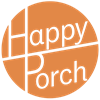Zeronet: Reverse logistics to solve the world’s e-waste problem
What do you do with that old laptop, kettle or toaster you no longer need? As it stands, your options are limited: throw it in the bin, take it to the tip, arrange a donation to a local charity shop, or hide it away and deal with it later. The fact is, as a consumer, it’s not clear how to best dispose of unwanted electricals. Meanwhile, the global pile of e-waste keeps growing: In 2019, the world produced almost 54 million tonnes of it.
Enter Zeronet, a company on a mission to transform the e-waste landscape through reverse logistics. By combining cutting-edge technology with dynamic partnerships, Zeronet has developed a way to collect what would otherwise be e-waste directly from households and process a wide range of electrical items for reuse or recycling.
A recent episode of our podcast series on the circular economy, we talked to Zeronet founder Paul McSweeney about how the company is implementing its cohesive zero waste model at scale.
If you have 1000 TV sets in a warehouse, you know where they are and what they’re made of,” explains Paul. “But as soon as they are sold to 1000 locations, suddenly that link is lost and recovering them in a way that allows them to be appropriately disassembled at scale becomes a real challenge.”
Following a pilot in Sterling, Scotland, Zeronet has just launched in the city of Brighton on the UK’s south coast. The platform consists of two apps: one for users and one for drivers. The user app lets householders register their home address and any electrical items they want to dispose of. This provides the company with the data required to view e-waste collection requests in real-time, and offer users a collection slot as well as instructions for preparing the items. Then the driver app kicks in: Once there is a large enough batch of items for collection, a van is dispatched to between 40 and 100 households in one day. Because the items have been registered and prepared in advance, they can be efficiently processed in the most efficient way.
Reuse is the most sustainable option when it comes to recovering waste, and many items Zeronet collects can be given a new home or stripped for useful parts. For this the company works with partners like Tech Take Back, which dissembles tech hardware, and Freegle, which rescues, repairs and redistributes household appliances and devices of all kinds. Zeronet even ensures personal data is wiped from laptops, tablets and smartphones – normally a major obstacle for people when it comes to disposing of such items. Finally, any items that can’t be reused are recycled for materials.
Paul first had the idea for Zeronet when he saw a post van delivering to a home at the same time a waste truck was collecting from the house next door. “I was struck by the contrast between the two things,” he says. “On the one hand, you had this very professional approach whereby a householder was acquiring a unit of inventory from probably a big brand like Amazon, and everything about that product was traceable. On the other hand, you had this fairly clunky, almost amateurish, process for removing residual waste.” Paul decided there must be a better way, and has dedicated the last decade to realising his vision.
Consumers have responded to Zeronet’s offering with enthusiasm. Paul has been surprised and encouraged to learn that most people are happy to put in the effort to register and prepare their electrical waste items properly, if it means they can avoid the stress of disposing of it themselves.
Not only is Zeronet helping to divert bulky e-waste away from landfill, it’s doing so in a way that actually generates revenue. Large logistics firms have expressed a keen interest in the platform, which is already serving over 100,000 households in Brighton and is capable of scaling to a national level. “If we do it right, it should have [a high impact], because it really is a complete shift in the way that we handle and process anything that is post-consumer,” concludes Paul. “It’s trying to solve a fundamental problem that exists effectively for everything.”

